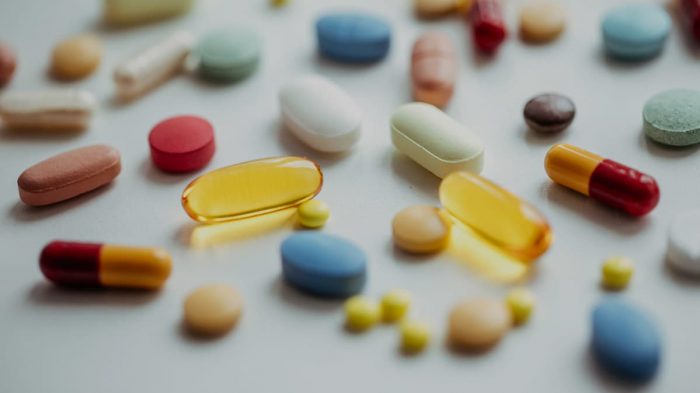The human body requires a number of Vitamins and Minerals that are vital for our body’s development, performance and disease prevention. These Vitamins and Minerals are also known as Micronutrients. Your body doesn’t generate them so you have to get them from the diet you eat. For this reason, your diet should be balanced and healthy.
A Nutritional Deficiency in your body occurs when it doesn’t get or is not able to absorb the required amount of nutrients from food. These decencies can cause a number of health problems including digestion problems, stunted or defective bone growth, skin disorders, and even dementia.
The amount of these nutrients that your body requires depends on your age. In the USA many food products that you from a grocery store like bread, cereals, and milk are fortified with nutrients to prevent any nutritional deficiencies. However, your body may face nutritional deficiencies if it could not absorb these nutrients from the food you eat even if you are consuming them right.
Let’s take a look at some of the problems that you may face if there is a deficiency of nutrients in your body.
-
Vitamin A Deficiency:
Vitamin A is a Nutrients group that is important for your eye health and functioning. It is also responsible for reproductive health in women and men. Your immunity system also benefits greatly from this Vitamin.
Vitamin A is the leading cause of preventable blindness in children according to WHO. Also, Pregnant Women with Vitamin A deficiency have a higher rate of Maternal Mortality as well. Beta Carotene is a nutrient that can be converted to Vitamin A by your body when needed. Beta Carotene is also a strong Antioxidant. Foods that have plenty of Vitamin A include eggs, milk, green/orange vegetables, and reddish-yellow fruits.
-
Iron Deficiency:
The most widespread deficiency across the world is the nutrient called Iron. Deficiency of Iron can lead to Anemia which is a blood disorder that causes weakness, fatigue and a variety of other issues. Iron is found in different foods like Dark Leafy greens, egg yolks, and red meat.
When there is a deficiency of Iron in your body, it produces fewer red blood cells. Also, the produced blood cells are paler and smaller than healthy blood cells. And accordingly, they are less efficient in delivering oxygen around tissues and organs in your body.
Over 30 percent of the World’s Population is Anemic and most of these people are anemic due to deficiency of Iron according to WHO. This is the only nutritional deficiency that is present in both developing and industrialized countries.
-
Vitamin B3 (Niacin) Deficiency:
Niacin also is known as Vitamin B3 helps your body in converting food into energy. Pellagra is the name given to Severe Niacin deficiency. Niacin is found in most Animal proteins and in peanuts. Problems that you may face due to Pellagra include diarrhea, Skin Disorders, and Dementia.
-
Vitamin B9 (Folate) Deficiency:
This is another Vitamin from the B Vitamins family that is responsible for producing DNA, one of the most important chemicals in your body. Folate or Vitamin B9 can also help in Brain Development and the proper functioning of the Nervous System. Folate plays an important role in the formation and development of a child’s brain and spinal cord. Deficiency of Folate can lead to severe growth problems and Anemia.
This vital nutrient can be found in foods like citrus fruits, asparagus, leafy green, fortified grains, whole grains, beans, and lentils.
-
Vitamin B1 (Thiamine) Deficiency:
As part of your Metabolism system, thiamine helps in turning carbohydrates into energy. It is a part of your Nervous System and deficiency of Thiamine can result in Fatigue, Weight Loss, Confusion and Short-term memory loss. This can also affect your heart and can cause nerve and muscle damage.
Alcohol use is also associated with Thiamine Deficiency because Alcohol reduces your body’s ability to absorb and store thiamin in the liver and to convert it to a usable form. Some of the sources of Thiamin are legumes, eggs, nuts, wheat germ, and seeds.
-
Vitamin B12 (Cobalamin) Deficiency:
Vitamin B12 is responsible for helping the body in making enough and healthy red blood cells. It is a B vitamin is blinded by Intrinsic Factor which takes it to the small intestine for absorption. Intrinsic Factor works as a transport protein secreted by the stomach cells.
Deficiency of Vitamin B12 can cause muscle weakness, difficulty in walking, dementia, irritability, memory loss and depression.
-
Vitamin D deficiency:
About 1 billion people across the globe don’t get enough Vitamin D according to Harvard’s School of Public Health. People with darker skin tones are at a higher risk of Vitamin D deficiency. Vitamin D is crucial for healthy bones and it maintains the right amount of Calcium in Body needed for Bone and Teeth development.
Deficiency of Vitamin D can lead to Poor Bone health and stunted growth. Osteoporosis is caused by a lack of Vitamin D and Calcium and can lead to porous and fragile bones that break easily.












Read 0 comments and reply